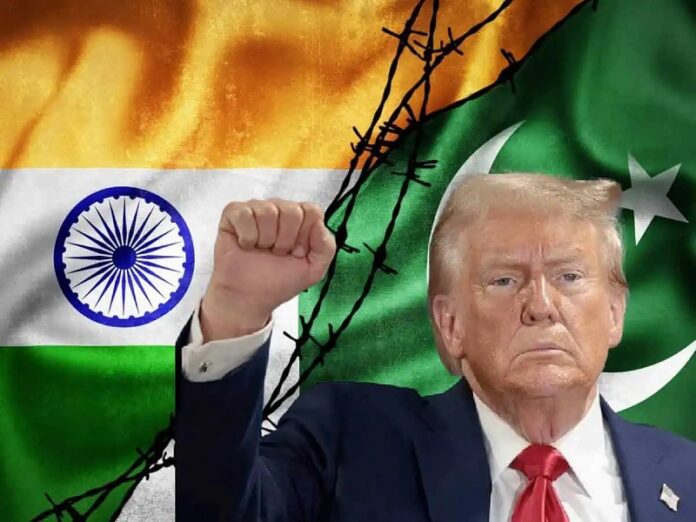India and Pakistan are back to the brink of war after last week’s Pahalgam terrorist attack, which saw allegedly Pakistani-affiliated terrorists massacre 26 Indian tourists in Kashmir who were targeted on the basis of their Hindu faith, thus prompting many to wonder about the US’ stance towards this crisis. America’s position is important since it’s still the most significant country in the world and it’s nowadays in the process of “Pivoting (back) to Asia”. Here’s what Trump said on Friday when he was asked about it:
“I am very close to India and I’m very close to Pakistan, as you know. And they’ve had that fight for 1,000 years in Kashmir. Kashmir has been going on for 1,000 years, probably longer than that. And it was a bad one yesterday, though, that was a bad one. Over 30 people.
There have been tensions on that border for 1,500 years. So, you know, the same as it’s been, but they’ll get it figured out one way or the other. I’m sure… I know both leaders. There is great tension between Pakistan and India. But there always has been.”
The first part of his response can be interpreted as signaling the US’ neutrality given its traditional strategic partnership with Pakistan and its comparatively newer one with India. Pakistan has been a “Major Non-NATO Ally” since 2004 while India was designated as the US’ first “Major Defense Partner” in 2016. This state of affairs explains why Trump offered to mediate the Kashmir Conflict in July 2019 per what he claimed was Modi’s request, which India denied, and then reiterated his intent that September.
Accordingly, the first part of his response can be seen as a reaffirmation of this policy, which could lead to him once again offering to mediate. In that scenario, given the precedent of him seeking to formalize the status quo between Israel-Palestine via 2020’s proposed “deal of the century” and him reportedly attempting to replicate that between Russia-Ukraine, he’d be expected to propose the same between India and Pakistan. That would take the form of turning the Line of Control into the international border.
Moving along, his historical review of the Kashmir Conflict is grossly inaccurate since it stems from the partition of the erstwhile British Raj, not some over-millennium-long dispute. Nevertheless, he might have wanted to convey that its religious dimension owes its origins to the Muslim invasion of hitherto almost entirely Hindu India centuries ago, to which end he embellished a lot like he’s known to do. This part of his response can therefore be interpreted as reminding everyone that this isn’t a new conflict.
The last part of his response suggests that he’s not interested in mediating at the moment though seeing as how he quipped that “they’ll get it figured out one way or the other.” That said, he’s not ruling out his personal involvement in this matter either since he also reminded everyone that “I know both leaders”, meaning Indian Prime Minister Narendra Modi and his Pakistani counterpart Shehbaz Sharif. He should thus already know that India rejects mediation, however, while Pakistan has always been open to it.
All told, Trump’s reaction to the Pahalgam terrorist attack can be interpreted as predictable condemnation of the killings and an unsurprising reaffirmation of American neutrality vis-à-vis India and Pakistan, which is intended to position the US to mediate if tensions worsen. It doesn’t want to get involved for now and prefers for this latest crisis to resolve itself but isn’t discounting a diplomatic intervention if the scenario of tit-for-tat strikes quickly spirals out of control into a nuclear standoff.
